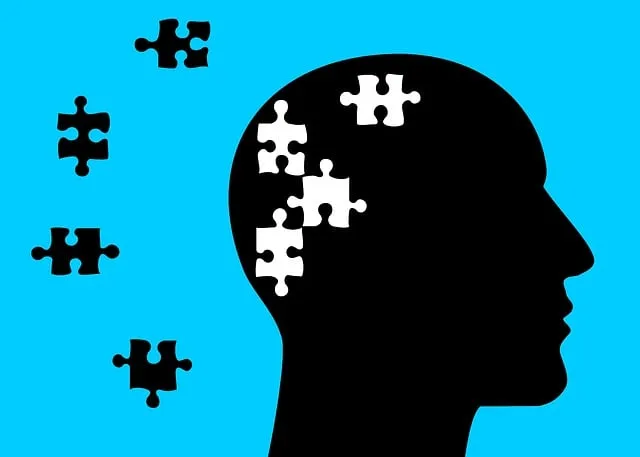Mental wellness programs, led by organizations like Kaiser Permanente with accessible psychiatric services in Aurora, offer counseling, workshops, mindfulness training, and peer support. These initiatives enhance well-being through stress management, coping strategies, and early intervention. Evaluating their success involves assessing participant satisfaction, mental health symptom changes, and impacts on work/academic performance. Mental wellness podcasts also facilitate open conversations across diverse communities. Comprehensive evaluation, including risk assessments tailored to at-risk groups, ensures these programs meet unique needs, fostering trust and enhancing accessibility to holistic mental healthcare.
Mental wellness programs have become increasingly vital in addressing the growing demand for accessible and effective healthcare. This article explores the critical role of evaluation in assessing the success of such initiatives, with a specific focus on the methods employed by leading healthcare providers like Kaiser Permanente. We delve into the diverse evaluation techniques, from quantitative data analysis to qualitative insights, offering a comprehensive guide to measuring mental wellness program effectiveness. By examining real-world examples, such as Kaiser Permanente’s psychiatry services in Aurora, we highlight best practices for creating impactful and culturally sensitive mental health support systems.
- Understanding Mental Wellness Programs
- – Definition and purpose of mental wellness programs
- – Importance of evaluation in program effectiveness
- Evaluation Methods for Mental Health Initiatives
Understanding Mental Wellness Programs

Mental wellness programs are designed to promote and maintain emotional, psychological, and social well-being. These initiatives often include a range of activities such as counseling services, stress management workshops, mindfulness training, and peer support groups. Organizations like Kaiser Permanente, with their psychiatry phone numbers accessible in Aurora, serve as leading examples in providing comprehensive mental health care. By integrating these programs into workplace environments or community settings, individuals can develop coping strategies that enhance their overall well-being.
The evaluation of such programs is crucial for understanding their effectiveness and making data-driven improvements. This involves assessing various factors including participant satisfaction, changes in mental health symptoms, and the program’s impact on job performance or academic success. A well-structured assessment, considering at-risk populations and incorporating methods like risk assessments for mental health professionals, can guide the development of more confidence-boosting mental wellness initiatives. Additionally, producing a mental wellness podcast series can help disseminate valuable information and foster open conversations about mental health in diverse communities.
– Definition and purpose of mental wellness programs

Mental wellness programs are designed to promote overall well-being by addressing various aspects of an individual’s mental health and emotional state. These initiatives aim to provide support, education, and tools to enhance resilience, improve coping mechanisms, and foster healthy habits that contribute to better Emotional Regulation. Such programs often incorporate strategies for Stress Reduction, Anxiety Relief, and the development of effective communication and problem-solving skills.
The purpose behind these initiatives is multifaceted. They seek to prevent mental health issues from escalating, offering interventions tailored to individual needs. Organizations like Kaiser Permanente, with their dedicated psychiatry phone services in Aurora, play a vital role by providing accessible resources for community members seeking support. These programs also promote early intervention, ensuring that people can receive the necessary care before more severe symptoms emerge, thereby improving overall Mental Wellness and quality of life.
– Importance of evaluation in program effectiveness

Evaluation is a cornerstone in understanding the effectiveness of mental wellness programs. It allows for a comprehensive assessment of program impact, identifying strengths and weaknesses to drive continuous improvement. By implementing robust evaluation methods, organizations like Kaiser Permanente, especially their psychiatry phone services in Aurora, can ensure that resources are allocated effectively towards evidence-based practices. This process is vital for measuring the success of interventions aimed at improving mental health outcomes, such as Stress Reduction Methods and enhancing Emotional Intelligence.
Regular evaluation enables healthcare providers to adapt programs based on client needs and cultural considerations. The ability to tailor services, informed by data gathered through evaluation, is crucial in addressing diverse populations’ unique challenges. Effective program evaluation also fosters transparency and accountability, which are essential for building trust between clients and Healthcare Provider Cultural Competency Training institutions, ultimately enhancing service quality and accessibility.
Evaluation Methods for Mental Health Initiatives

Mental wellness program evaluations are pivotal to understanding the effectiveness and impact of initiatives aimed at improving mental health outcomes. Organizations like Kaiser Permanente, with their psychiatry phone services in Aurora, have pioneered innovative methods for assessing and enhancing mental healthcare. One such method is the Risk Assessment for Mental Health Professionals, which focuses on identifying potential risks and vulnerabilities among service providers to ensure they can effectively support clients.
Moreover, Community Outreach Program Implementation plays a crucial role in expanding access to mental health services. These programs not only target individuals but also foster collective well-being through educational workshops, group therapy sessions, and self-care practices. By integrating these evaluation strategies, mental wellness initiatives can be tailored to meet the unique needs of diverse communities, ultimately leading to more inclusive and impactful care.
Evaluating mental wellness programs is a vital step in ensuring their effectiveness and impact. By utilizing various methods, such as surveys, interviews, and data analysis, organizations like Kaiser Permanente can measure the success of initiatives aimed at improving mental health. For instance, their psychiatry phone services in Aurora have successfully incorporated evaluation strategies to enhance patient care. These methods not only identify program strengths but also highlight areas for improvement, fostering continuous growth and better support for individuals seeking mental wellness solutions.






